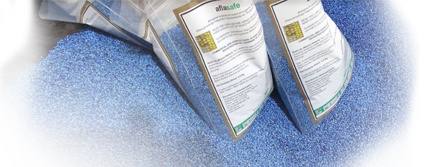Aflatoxin costs Africans enormous sums in lost opportunities and lost productivity. By making food unfit to eat or trade, robbing humans of health, and stunting and killing farm animals it has a cruel economic impact on individuals, communities, countries, and the whole continent.
- Aflatoxin contamination limits trade in food crops, closing off premium export markets where aflatoxin levels are strictly monitored and enforced. International confectionery companies, for example, are keen to buy groundnuts from West Africa if they can be made to meet safe aflatoxin limits, with a potential annual value of hundreds of millions of dollars.
- Chronic sickness creates serious medical costs for families, while national health systems groan under the extra strain of this preventable disease burden. At the same time, both household and national economies suffer from lost income from those who are less able to work because of the developmental or health damage caused by aflatoxin, and the lost productive years of those who die early.
 The deliberate destruction of contaminated food for public safety, for example by burning of grain, is costly for governments and can be devastating for individual farmers.
The deliberate destruction of contaminated food for public safety, for example by burning of grain, is costly for governments and can be devastating for individual farmers.- Aflatoxin contamination in feed increases death rates and reduces growth in poultry and livestock, representing a serious cost to these growing industries. It costs poultry farmers over 10% of productivity in many countries.
For a more in-depth look at economic impacts, see our industry and economics page.










